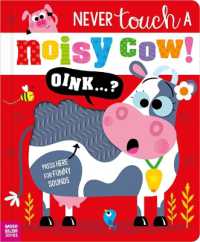Description
(Text)
REAL invites contributions on the relationship between literature and cultural change. The study of culture has to face the difficulty of not being able to observe its object directly. Its only access is via cultural phenomena as observable products of human activity: artefacts, texts, rites, symbols, forms of conduct. If scholars wish to study cultural change, they need to do so by investigating the changing relationships among these phenomena, the changing connections between social structures, mentalities and the material dimension of texts, artefacts and other objects. While some scholars have rejected the concept of culture because of this indirectness, others - from Malinowski to Luhmann - have attempted to make it theoretically more precise and historically more saturated. Societies change as well as cultures, but they are not the same and they evolve at different speeds.Few scholars in literary studies would contest the notion that literature is a part of culture, or partof a society's cultural memory, but many are divided over the precise nature of the connection between literature and culture. In recent years, the rise of Cultural Studies has led to a situation in which literature is frequently used as documentary evidence of particular aspects of culture and cultural change. But the aesthetic dimensions of literary texts are often unduly neglected in Cultural Studies, and the connections between literature and cultural change have not been sufficiently examined. That literature is a factor that contributes to cultural change - either internal, due to the dynamics of culture as a system of signification, or external, due to the manifold contacts with other cultures - is hardly in need of additional demonstration. What is less clear and deserves more attention, however, is its particular role in motivating, instigating or hindering cultural change, and the influence of cultural change on the evolution of literature. To what extent - if at all -is literature a self-determining, autonomous subsystem of culture, and what are the historical factors that, at least in the West, have enabled literature to become a form of communication in which, as Jacques Derrida pointed out, it is possible "in principle to say everything" and thus to transgress the limits of culture? To what extent and by which means and strategies can literature, due to this extraordinary licence and empowering, act as an agent of cultural change?
(Text)
What are the connections between literature and culture, and between literature and cultural change? Literature and its conventions are obviously subject to cultural change, and can be used as documentary evidence of particular aspects of culture and cultural change. But how are its aesthetic dimensions and cognitive affordances related to such change, both within the intrinsic dynamics of cultures as systems of signification and in the manifold contacts with other cultures? And how does literature itself contribute to cultural change?The essays in this volume examine the impact of cultural change on the evolution of literature, and they investigate how literature - from the early modern period to the present - has been an active agent in motivating, instigating or hindering cultural change, trying to speed it up or slow it down. Ranging from early modern drama to poetry of the First World War and from contemporary ecopoetry to migrant literature of the 1950s, they explore questions of literature and cultural change from theoretical and historical perspectives in literary and cultural studies.








